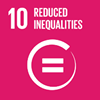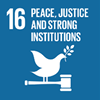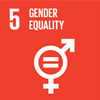This project aims to study and learn from the policy efforts and experience of countries fighting inequality, with particular attention to experiences from the Global South. By doing so, it hopes to offer key lessons and frameworks for reducing inequalities around the world.
Reducing inequalities is now at the forefront of the global agenda. Inequality has been called one of the defining challenges of our time and a growing body of evidence that supports this assertion continues to accumulate.
While much of inequality studies focus on measuring inequalities or assessing the impact that they have on key development outcomes such as stable and democratic governance, health and education, or economic growth, this project aims to study and learn from the policy efforts and experience of countries fighting inequality, with particular attention to experiences from the Global South. By doing so, it hopes to offer key lessons and frameworks for reducing inequalities around the world.
The project will focus specifically on efforts to reduce group-based or identity-based inequalities - sometimes called horizontal inequalities - in developing countries. These are inequalities within and between groups based on ethnic, religious, racial, and other socio-culturally defined divisions. They include inequalities of income, access to political rights, health and education, and so on.
‘Addressing group-based inequalities' contains three main areas of research:
-
Experiences of reform
-
Affirmative action around the world
-
Migrant experiences — forced migration from Vietnam and Afghanistan
Together, these research areas will highlight the social transformations, political coalitions, and policy frameworks that have succeeded at reducing inequality, and those that have not. It will build a cross-national, longitudinal database to broaden understanding of what works and what doesn’t work in affirmative action policy. And, it will shed light on the ways in which social inequalities affect migrant populations.
Key questions
-
How do group-based inequalities change? What factors influence such change?
-
What can be done to address horizontal inequalities? What is the range of policy options? What is their record of success?
-
How has the political will for such policies and reform processes been built and sustained?
-
How do structural, institutional, and other factors influence reform processes and outcomes?
-
What policies and approaches should we expect to work best in different contexts? How can we be more systematic about taking context into account in applying lessons learned from one context to others?
-
How do inequalities between migrants and local populations vary across contexts and evolve over time? What factors influence such variation? What can host country governments in particular do to best promote economic integration
Watch this space
All papers, data and opinion pieces relating to this project, as well as opportunities to engage will be available on this webpage.
This project centrally addresses SDG 10 (reduce inequality within and among countries). Components of the project speak directly to SDG 16 (effective, accountable, and inclusive institutions), and SDG 5 (gender inequality).

 Join the network
Join the network


